Navigating the World of Windows 10 Licenses: A Comprehensive Guide
Related Articles: Navigating the World of Windows 10 Licenses: A Comprehensive Guide
Introduction
With enthusiasm, let’s navigate through the intriguing topic related to Navigating the World of Windows 10 Licenses: A Comprehensive Guide. Let’s weave interesting information and offer fresh perspectives to the readers.
Table of Content
Navigating the World of Windows 10 Licenses: A Comprehensive Guide
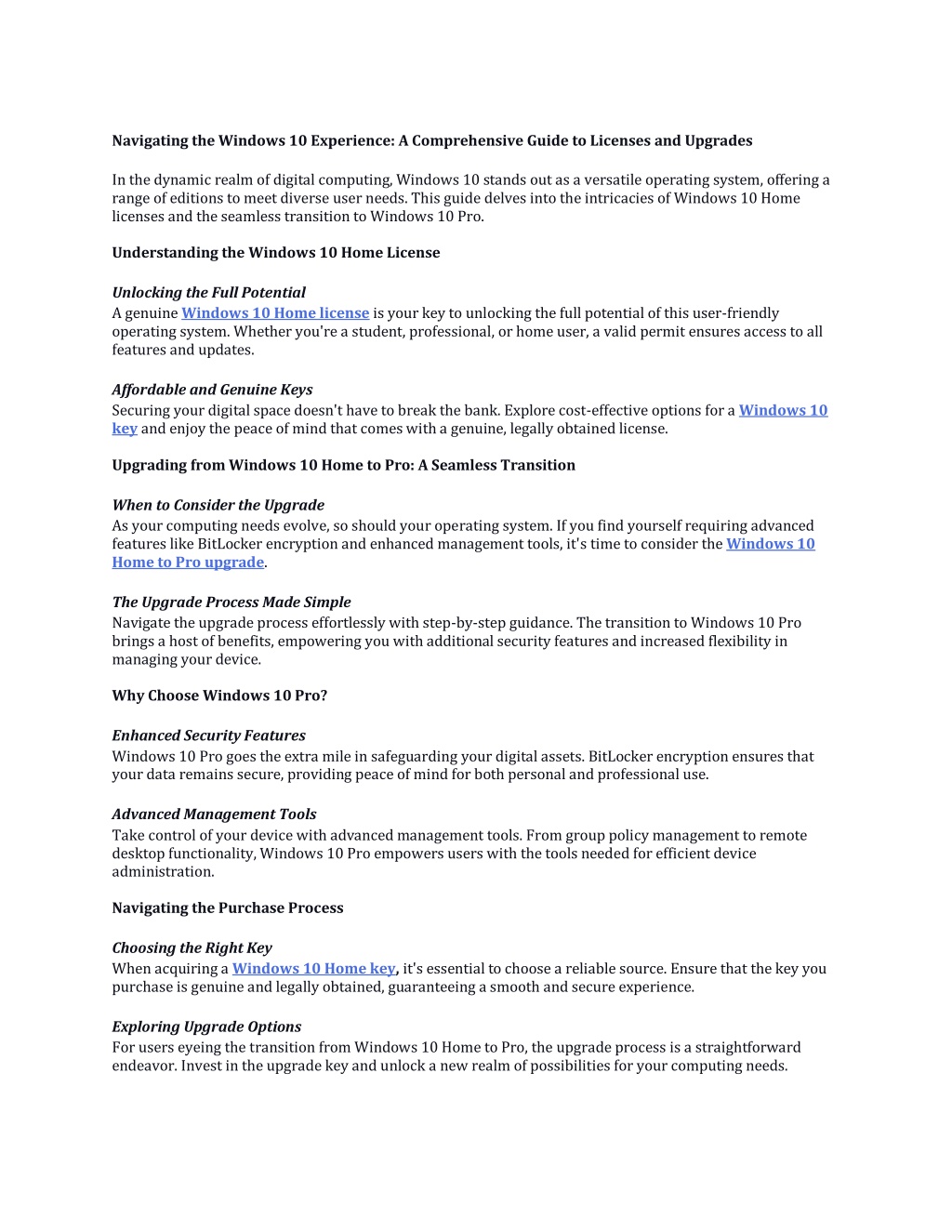
Windows 10, Microsoft’s flagship operating system, has become ubiquitous across personal computers, laptops, and tablets. Its user-friendly interface, robust security features, and extensive app compatibility have made it a popular choice for both individuals and businesses. However, accessing the full functionality of Windows 10 requires a valid license key. This guide delves into the various aspects of obtaining a Windows 10 license key, providing clarity and insights into the process.
Understanding Windows 10 Licenses: A Foundation
A Windows 10 license key serves as a digital passport, granting you access to the full range of features and functionalities offered by the operating system. It acts as a confirmation of your right to use Windows 10, ensuring that you are using a legitimate copy and not a pirated version.
Types of Windows 10 Licenses: A Spectrum of Options
The world of Windows 10 licenses encompasses various options, each tailored to specific needs and budgets. Understanding these options is crucial for making an informed choice:
- Full Retail Licenses: These licenses offer the most comprehensive access to Windows 10, allowing users to install the operating system on a single device and providing the right to upgrade to future versions. They are typically purchased directly from Microsoft or authorized retailers.
- OEM Licenses: Pre-installed on new computers, these licenses are tied to the specific hardware they come with. They are generally less expensive than retail licenses but are not transferable to other devices.
- Volume Licensing: Designed for businesses and organizations, these licenses offer bulk discounts and flexibility in deployment. They often come with additional benefits like centralized management tools and support services.
- Upgrade Licenses: These licenses are for users who already have an older version of Windows (like Windows 7 or 8.1) and wish to upgrade to Windows 10. They are generally less expensive than full retail licenses but require a valid existing license.
Where to Buy Windows 10 Licenses: A Marketplace Overview
With the diverse range of license options available, choosing the right source for your purchase is equally important. Here’s a breakdown of the most common channels:
- Microsoft Store: The official source for Windows 10 licenses, the Microsoft Store offers a wide range of options, including full retail licenses and upgrade licenses.
- Authorized Retailers: Numerous online and physical retailers, like Amazon, Best Buy, and Newegg, sell Windows 10 licenses. It’s crucial to ensure they are authorized resellers to avoid counterfeit products.
- Third-Party Marketplaces: While offering potentially cheaper options, these platforms (like eBay or Newegg Marketplace) carry a higher risk of encountering fraudulent licenses. Thorough research and due diligence are essential.
Tips for a Secure and Fulfilling Purchase:
- Verify Authenticity: Always purchase from reputable sources like the Microsoft Store or authorized retailers. Be wary of suspiciously low prices or offers from unknown sellers.
- Check License Type: Ensure the license you are buying matches your needs and device. Read the product description carefully before making the purchase.
- Read Reviews: Before buying from third-party marketplaces, check reviews and ratings of sellers to gauge their reliability.
- Save Proof of Purchase: Keep a copy of your purchase receipt and license key for future reference, especially if you need to reinstall Windows or contact Microsoft support.
Frequently Asked Questions: Unraveling Common Concerns
Q: Can I transfer my Windows 10 license to a new computer?
A: This depends on the license type. Full retail licenses are generally transferable, while OEM licenses are tied to the original device.
Q: What happens if I lose my Windows 10 license key?
A: Microsoft offers ways to recover your license key if you have a valid proof of purchase. However, if you can’t provide proof, you may need to purchase a new license.
Q: Can I activate Windows 10 without a license key?
A: You can use Windows 10 without a license key, but it will be in a limited "evaluation" mode, with features like personalization and updates restricted.
Q: Is it illegal to use Windows 10 without a license key?
A: Yes, using Windows 10 without a valid license key is considered illegal and may result in legal penalties.
Conclusion: Embracing the Power of Legitimate Windows 10
Acquiring a legitimate Windows 10 license is an investment in a secure, reliable, and feature-rich operating system. It ensures you are using a genuine copy, protecting your data and privacy while accessing the full potential of Windows 10. By understanding the different license types, sourcing options, and potential pitfalls, you can make an informed choice that aligns with your needs and budget. Remember, a legitimate Windows 10 license is not just about unlocking features; it’s about embracing a secure and trustworthy computing experience.
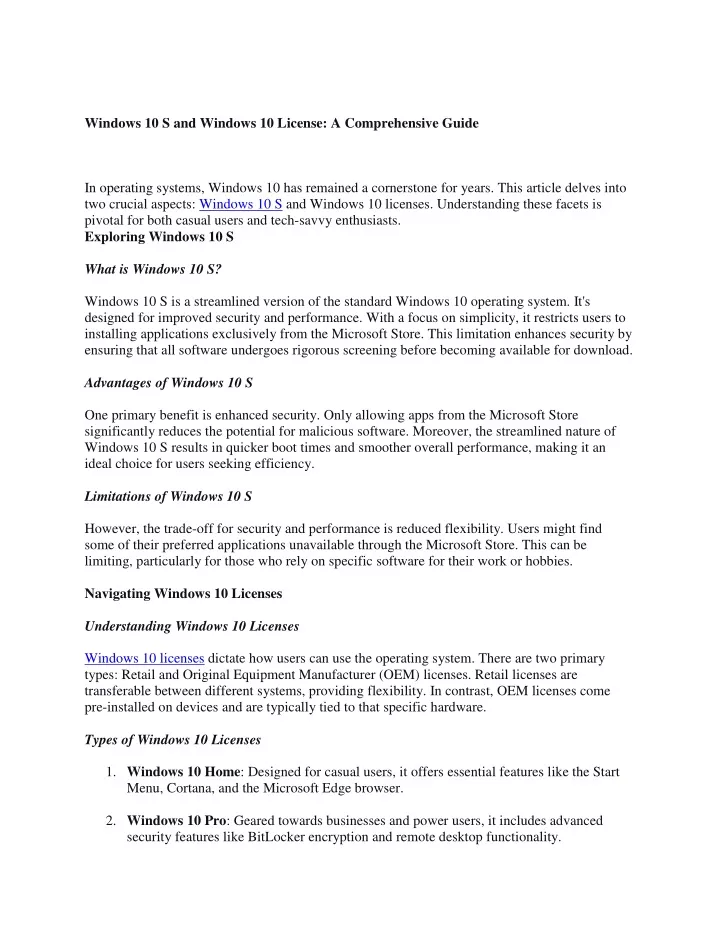


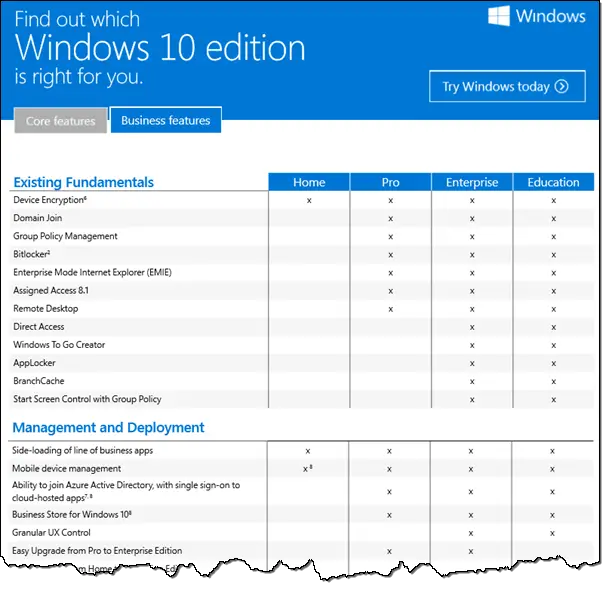

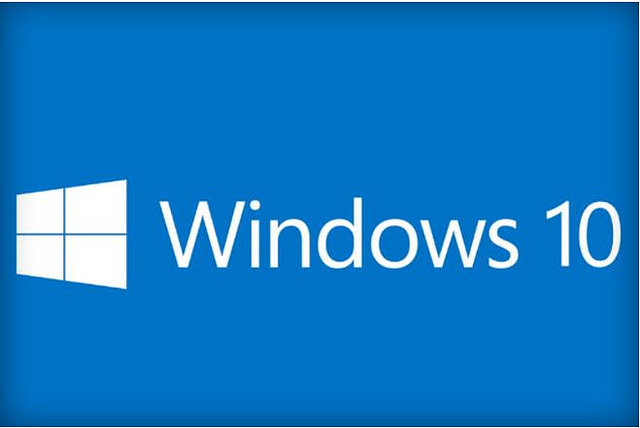
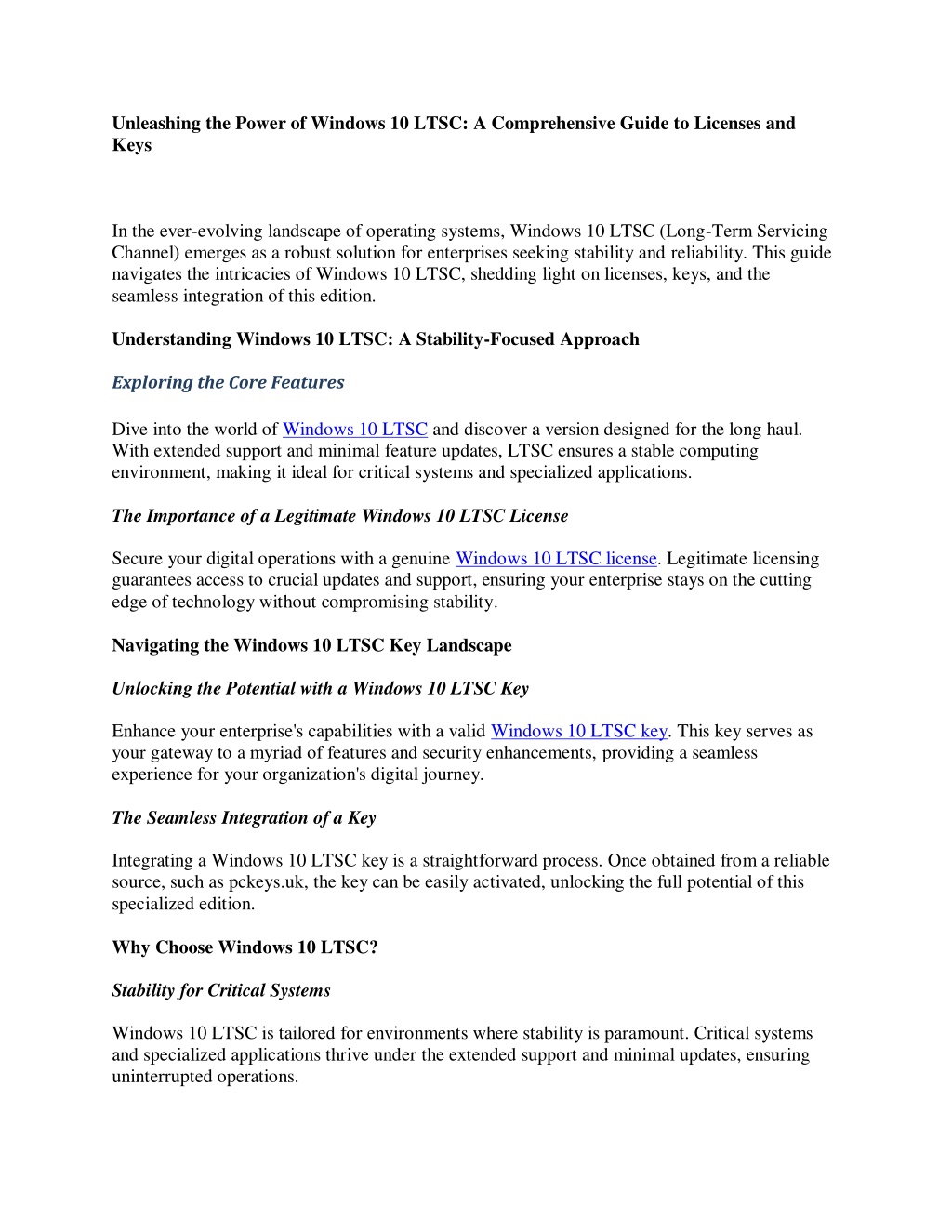
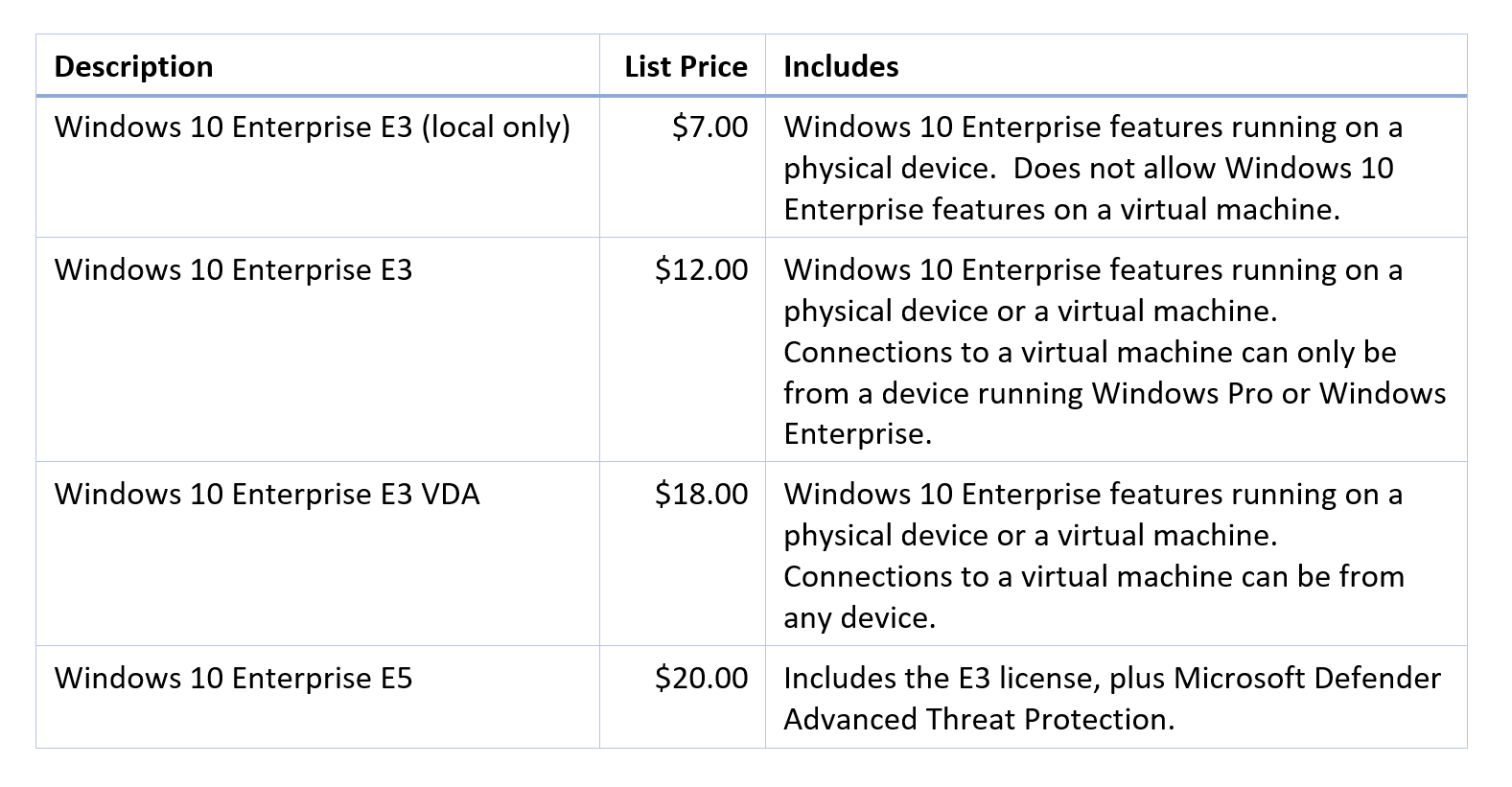
Closure
Thus, we hope this article has provided valuable insights into Navigating the World of Windows 10 Licenses: A Comprehensive Guide. We thank you for taking the time to read this article. See you in our next article!